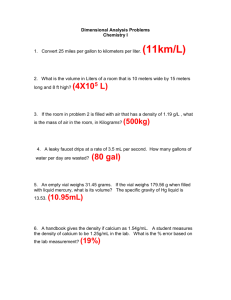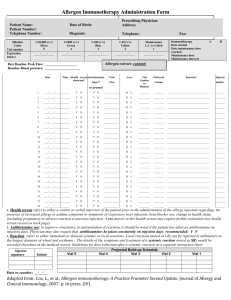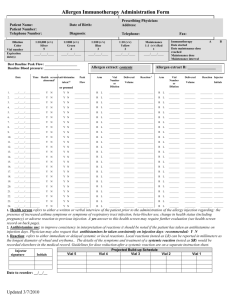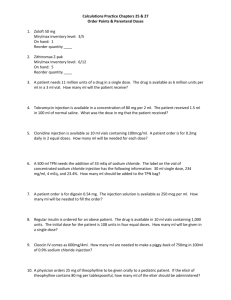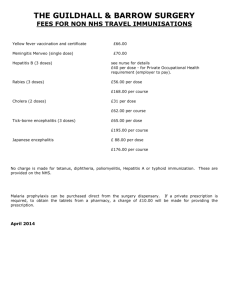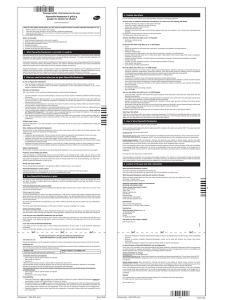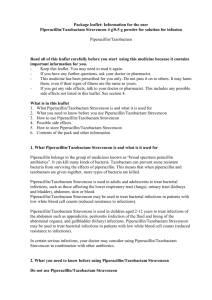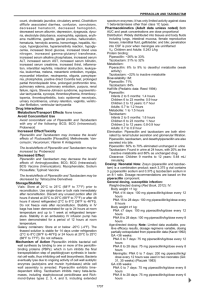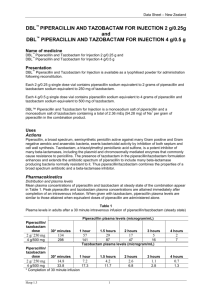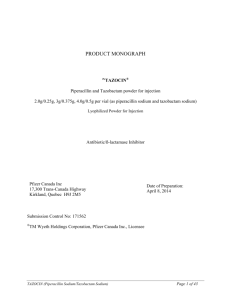Zosyn Mixing Guide: Step-by-Step Compounding Instructions
advertisement
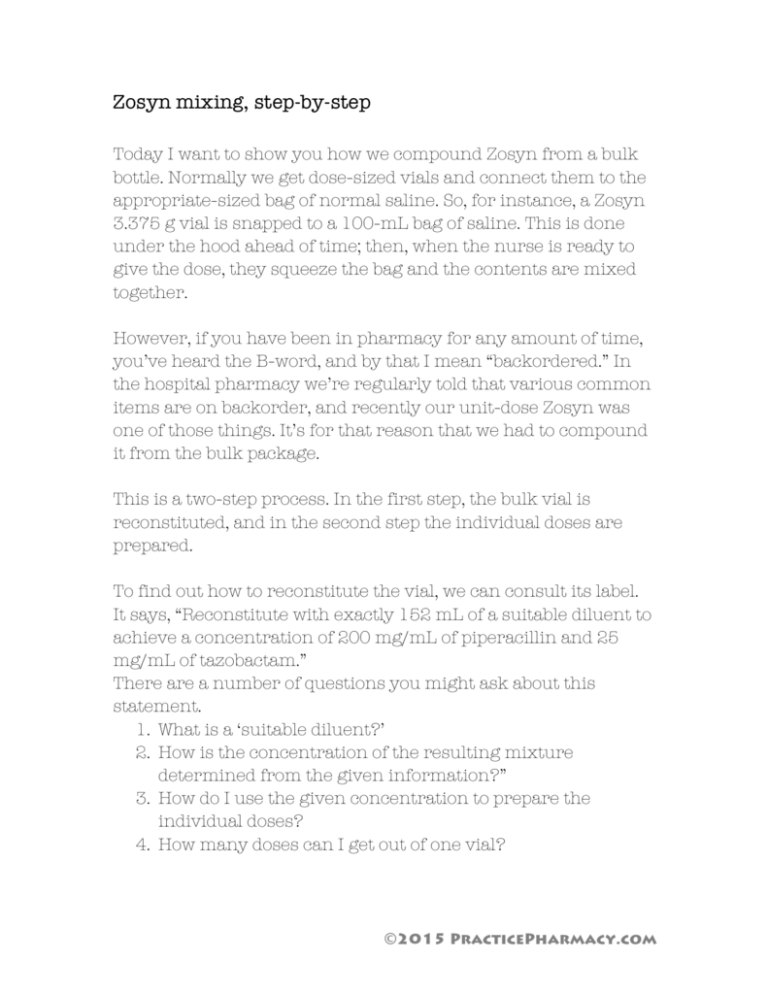
Zosyn mixing, step-by-step Today I want to show you how we compound Zosyn from a bulk bottle. Normally we get dose-sized vials and connect them to the appropriate-sized bag of normal saline. So, for instance, a Zosyn 3.375 g vial is snapped to a 100-mL bag of saline. This is done under the hood ahead of time; then, when the nurse is ready to give the dose, they squeeze the bag and the contents are mixed together. However, if you have been in pharmacy for any amount of time, you’ve heard the B-word, and by that I mean “backordered.” In the hospital pharmacy we’re regularly told that various common items are on backorder, and recently our unit-dose Zosyn was one of those things. It’s for that reason that we had to compound it from the bulk package. This is a two-step process. In the first step, the bulk vial is reconstituted, and in the second step the individual doses are prepared. To find out how to reconstitute the vial, we can consult its label. It says, “Reconstitute with exactly 152 mL of a suitable diluent to achieve a concentration of 200 mg/mL of piperacillin and 25 mg/mL of tazobactam.” There are a number of questions you might ask about this statement. 1. What is a ‘suitable diluent?’ 2. How is the concentration of the resulting mixture determined from the given information?” 3. How do I use the given concentration to prepare the individual doses? 4. How many doses can I get out of one vial? ©2015 PracticePharmacy.com 1. To find out what diluent to use, we will consult the package insert. In the section on “Reconstitution and Dilution of Powder Formulations” there is a list of “Compatible Reconstitution Diluents for Pharmacy Vials,” and you can see listed sterile water for injection. We can draw from a liter bag of sterile water to mix these vials if we have several to mix, or we can draw from multiple smaller vials. 2. The bulk vial contains a total of 40.5 g of Zosyn. Zosyn is a bit different from most other drugs in that the grams listed are a total of the piperacillin/tazobactam it contains instead of the two components being listed separately. So a dose of 2.25 g contains 2 g of piperacillin and 250 mg of tazobactam. Keeping this in mind, the label is saying that the concentration of the resulting solution is 225 mg/mL of Zosyn (200 mg/mL piperacillin + 25 mg/mL tazobactam.) But if you take 40.5 g, which is the same as 40,500 mg, and mix it with 152 mL of sterile water, it would seem the concentration is about 266 mg/mL--more concentrated than expected. The explanation for this is that the powder has a volume that adds to the total volume of the solution. We can even calculate that volume: (40,500 mg / 225 mg/mL) - 152 mL = 28 mL powder volume. This is something we definitely have to account for, but luckily, it’s not something that we have to calculate every time we need to mix Zosyn. 3. Now we know what to use to dilute the vial and how to go about diluting it. Once the vial is mixed, we need to get the individual doses drawn up. The concentration of the vial is a convenient concentration to work with. The two most common doses are 3.375 g and 2.25 g. We can take the dose desired and divide by the concentration to get the volume that contains the dose. Let’s take 2.25 g and divide by 225 mg/mL (0.225 g/mL). The grams cancel out and we’re left with 10 mL of solution. Ten milliliters of solution is drawn ©2015 PracticePharmacy.com up into a syringe and then injected into a 50-mL piggyback bag of normal saline. 4. Now you have a plan of action, but before you go under the hood you’ll need to gather up your supplies. How many vials will you need? That will depend on the size and number of the doses you’re making. Let’s just say you’re making a batch of 2.25 g piggybacks. 40.5 g / 2.25 g = 18 doses. This is reinforced with the math we did earlier where we figured the total volume of the vial would be 180 mL once mixed. 180 mL / 10 mL/dose = 18 doses. Now you know how to mix a Zosyn bulk vial and prepare individual doses. Check out practicepharmacy.com for more study resources and real-world pharmacy examples! ©2015 PracticePharmacy.com
